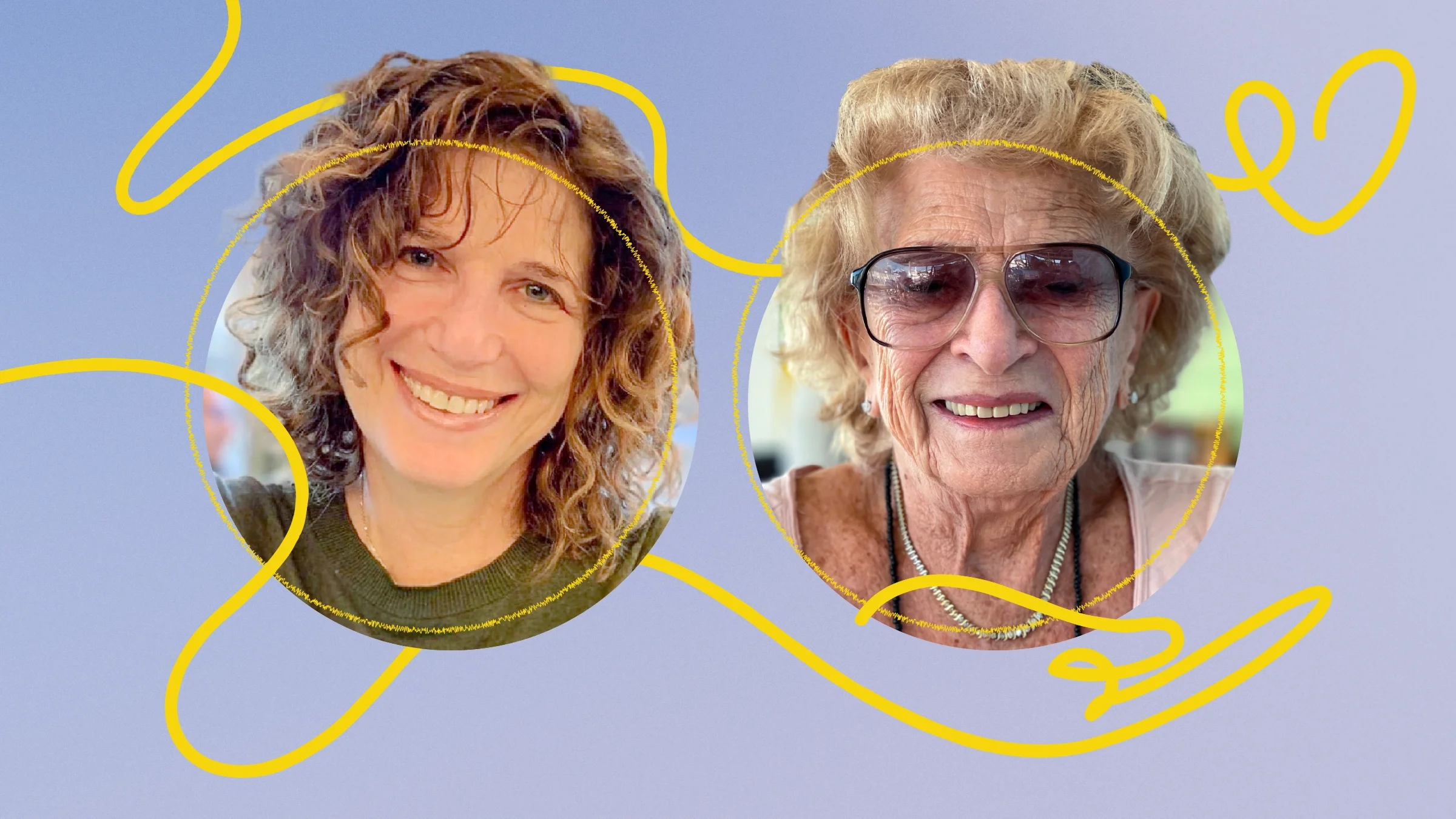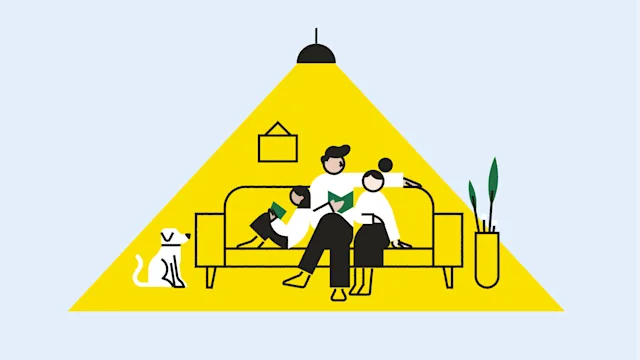Key takeaways:
Gayle Kirschenbaum had a difficult relationship with her mother, Mildred, until she learned to forgive her.
Forgiveness brought healing for Gayle and also healed their mother-daughter relationship.
Today, Gayle and Mildred are social media influencers and best friends who have traveled the world together.
Gayle Kirschenbaum has a warm and close bond with her 100-year-old mother, Mildred Kirschenbaum. They’re best friends who travel together and stay in daily contact. But it wasn’t always that way.
Gayle spent most of her life in conflict with Mildred. She describes her mom as unaffectionate and sometimes cruel to her when she was growing up. “I had a horrific relationship with my mother,” she says.
Over time, Gayle realized her unresolved anger was poisoning her life and damaging her mental health. She says she knew she needed to learn to forgive Mildred. When she did, their relationship turned around.
Gayle is an acclaimed filmmaker, TV producer, writer, and photographer. Like many artists, she has turned her pain into art. She created two award-winning films about her relationship with her mother. She is working on a memoir, and she’s a forgiveness coach who helps others heal their relationships.
Gayle’s journey from abuse to forgiveness
Gayle has two older brothers. Her mother expected her to be a boy, too, and she even told people the baby’s name would be Gary. “I believe we got off to a bad start when my mother was woken up and was told she had a girl, not a boy,” Gayle says.
Mildred showered affection on the boys, but Gayle says her mother didn’t give her the love she longed for. Everything came in for criticism, including Gayle’s weight, nose, and curly hair. Gayle says the rest of the family followed Mildred’s lead, bullying and mistreating her.
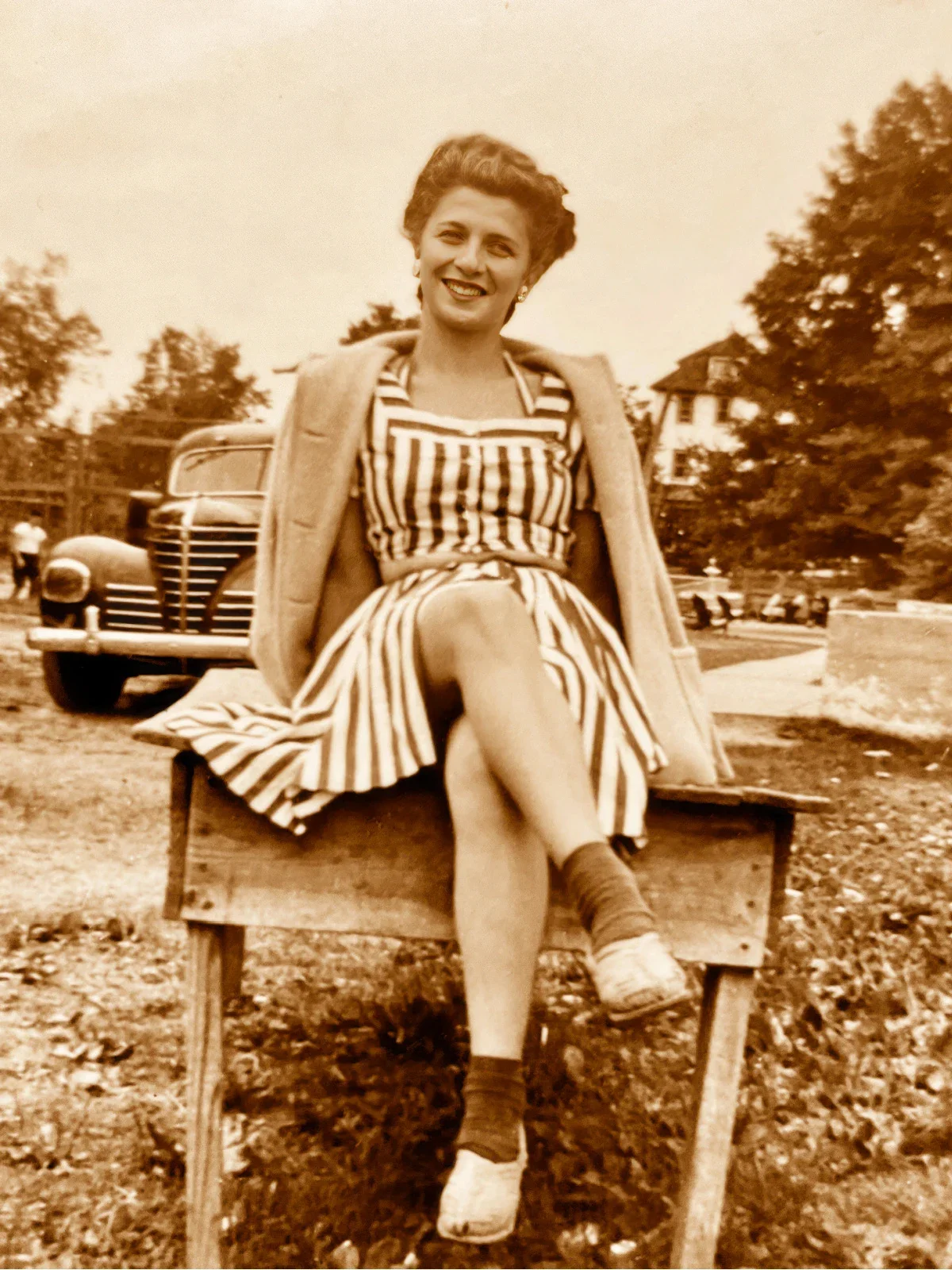

From the time she was very young, Gayle knew her mother’s mistreatment wasn’t her fault. She sensed that her mom had also been a wounded child. Mildred wouldn’t talk about her past. But as an adult, Gayle did genealogical research that confirmed Mildred’s difficult childhood.
A turning point came when Gayle took part in a forgiveness board game. The facilitator asked her to close her eyes and imagine her mother as a little girl. “At that point, I knew about the tragedies and hardships of her childhood. And I saw a wounded little girl,” Gayle says.
Then the facilitator told her to imagine herself as a girl. Gayle knew that she had also been a wounded little girl.
The facilitator asked her to come together with her mother. “We were now two wounded girls,” Gayle says. “That was such an aha moment, because she was no longer my mother. She was just like me, another child.”
Read more like this
Explore these related articles, suggested for readers like you.
Forgiveness transformed her relationship with her mother
After the insight from the board game, it took several years before Gayle began to forgive Mildred.
Gayle’s career thrived. She wrote, produced, and directed documentaries for Lifetime and A&E. She also produced for several networks, including NBC and CBS. Then she turned the camera on herself, earning high praise for her film “A Dog’s Life: A Dogamentary.”
But her family relationships were not thriving. She says her family didn’t acknowledge her accomplishments, and they kept bullying her. “I was reacting to this by either cowering or giving it back,” she says. “I knew the only way I could move on and not let their behavior impact me was to learn how to forgive.”
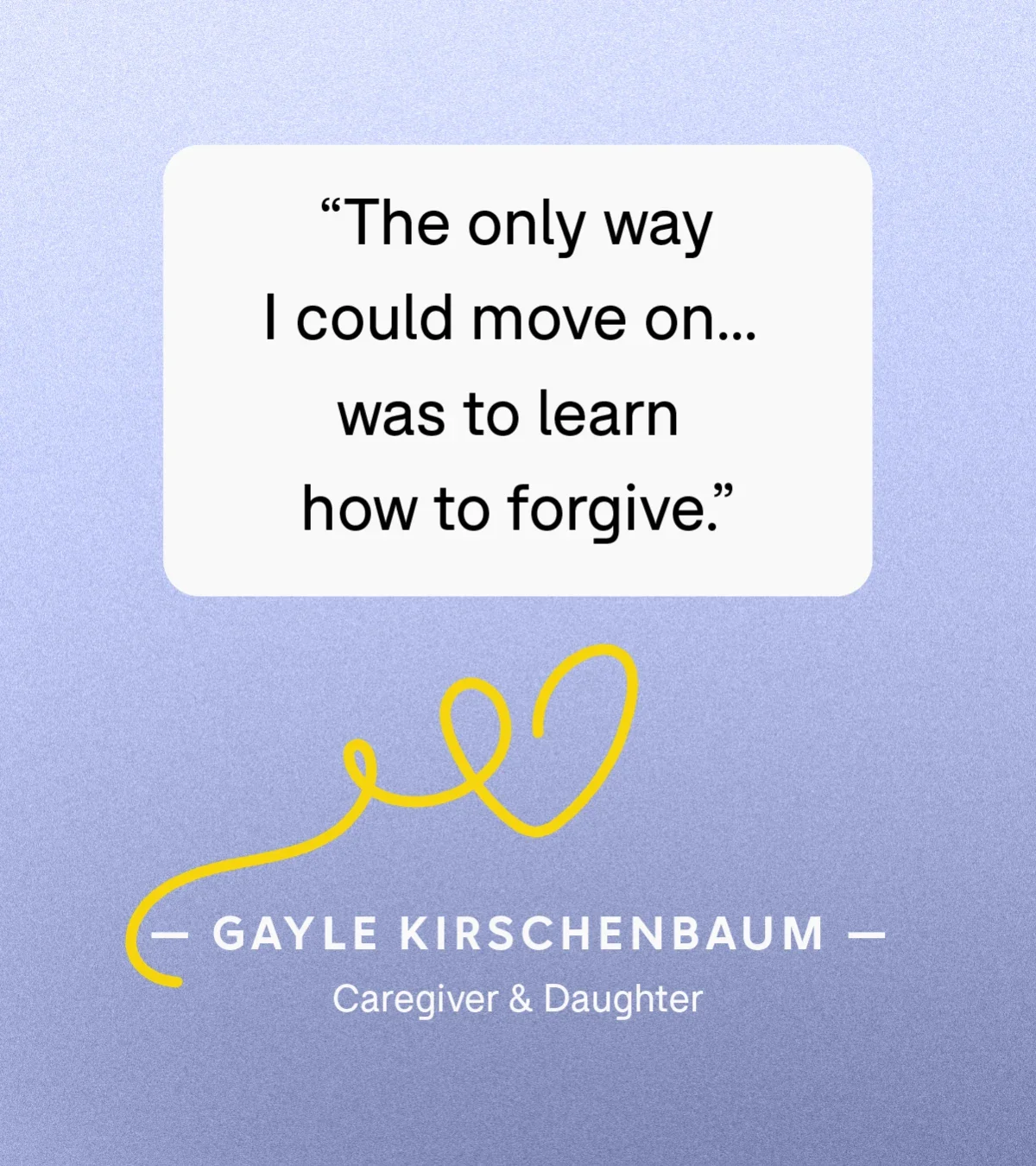
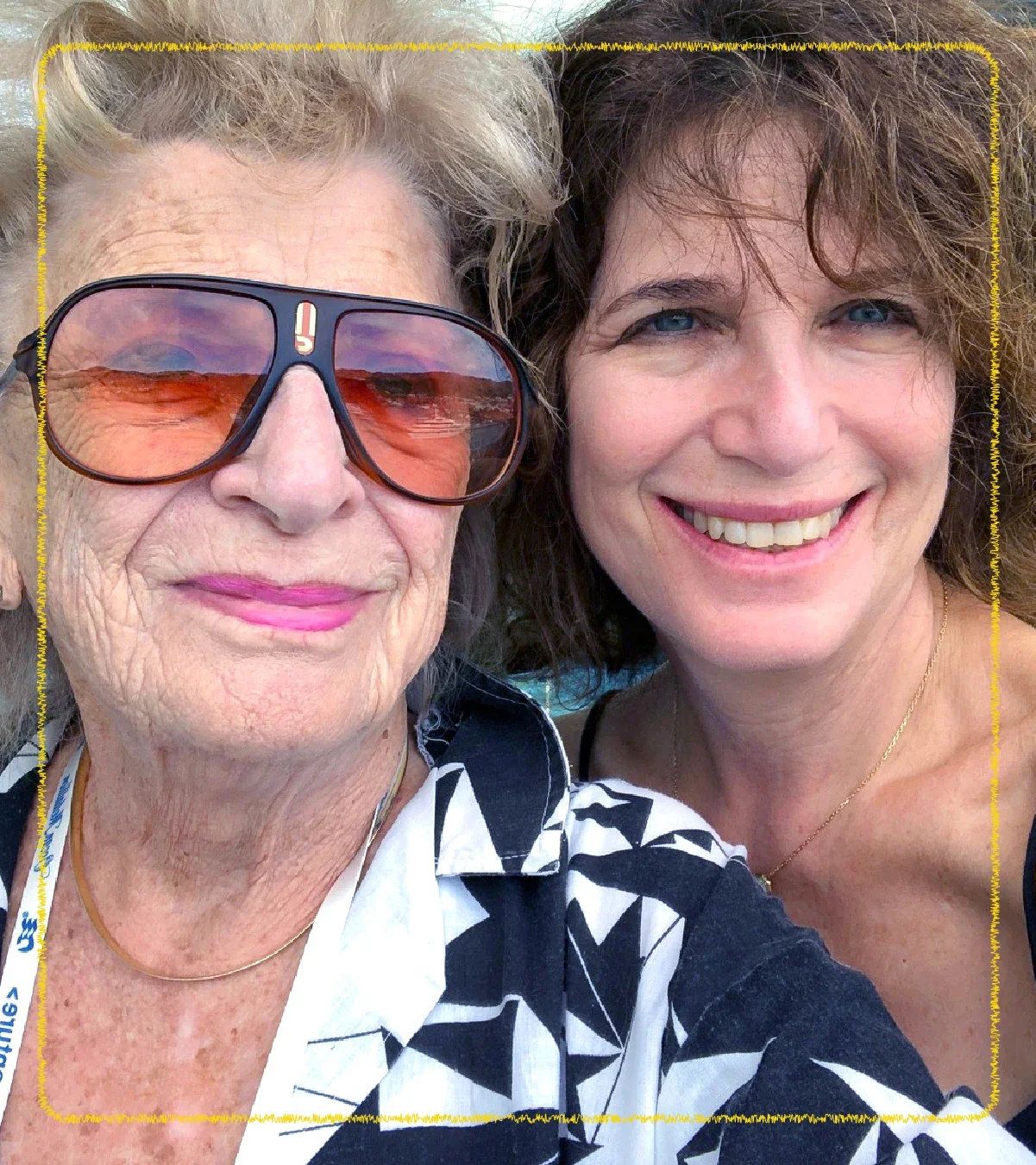
As she found her way toward forgiveness, she was able to stop reacting to her mother’s mistreatment. And when she stopped reacting, Mildred backed off.
“I reframed how I saw her,” Gayle says. “Instead of seeing her as my mother who should love and adore me, I saw her as a wounded child. And with that, I changed my expectations. So I was able to ignore or laugh at her criticisms. When I did that, she realized she didn’t have power over me anymore.”
Going public as they healed their relationship
During her process of forgiveness, Gayle made a short comedic film called “My Nose.” It tells the story of Mildred’s long quest to get Gayle to have a nose job. Gayle consulted three plastic surgeons, bringing her mother and a camera crew along. (Spoiler alert: Gayle didn’t get a nose job.)
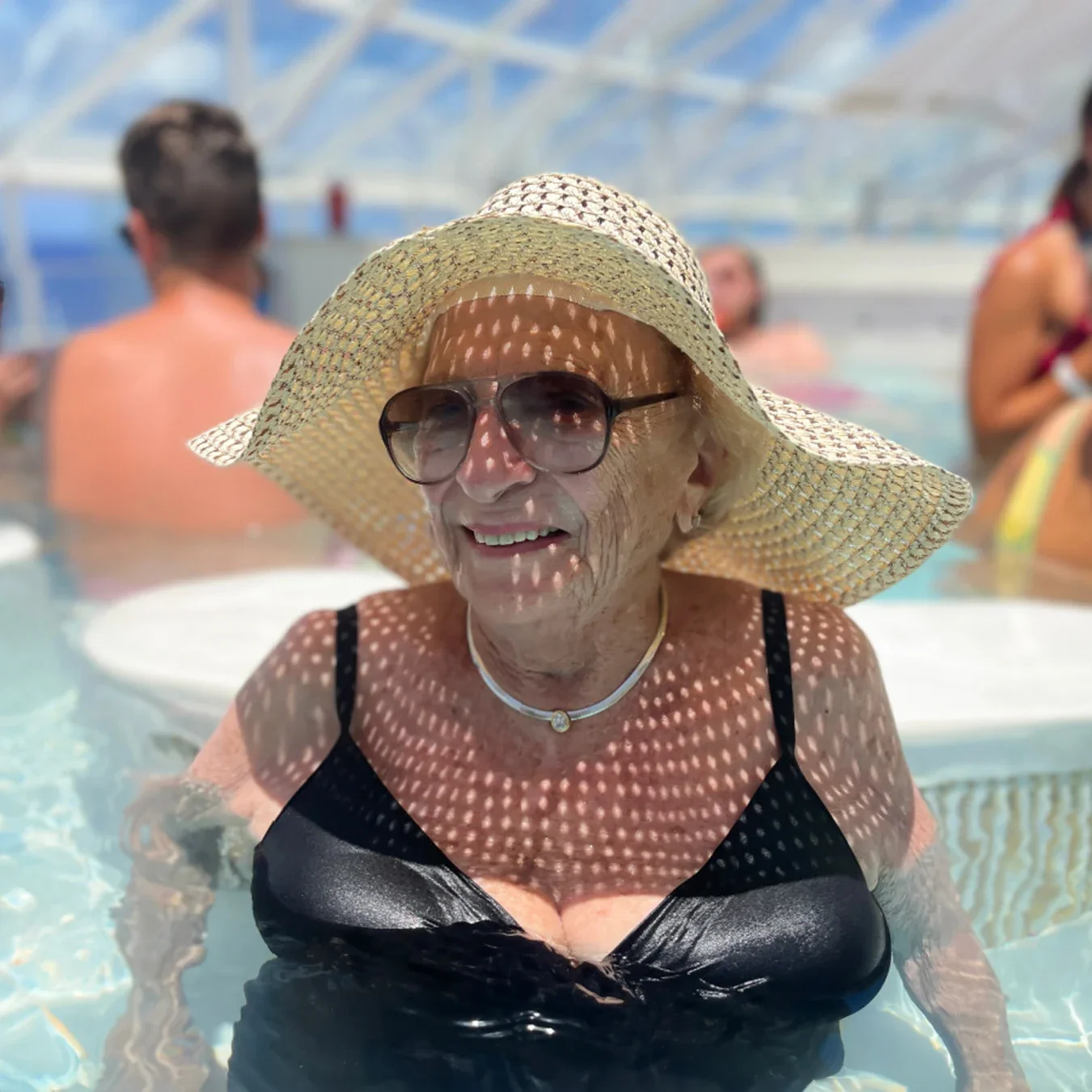

The film and its portrayal of their relationship struck a chord with many people. When it played at festivals, viewers waited in line to share their stories with Gayle. “There was so much childhood trauma affecting people,” she says.
That’s when Gayle asked her mom if she would be willing to work on their relationship and see a therapist together, with cameras rolling. Mildred loves the spotlight, so she said yes. The documentary “Look at Us Now, Mother!” was the result. Released in 2015, the film streamed on Netflix in 2017. Gayle calls it the hardest and most important film she has ever made.
Since the film’s release, Gayle and Mildred’s remarkable journey has continued. With Gayle’s help, Mildred recently became a social media influencer. She shares her 100 years of wisdom with thousands of followers. In March 2024, she released a book, “Mildred’s Mindset: Wisdom From a Woman Centenarian.” She and Gayle still travel together, and Mildred just bought a new car.
At age 99, Mildred publicly apologized to Gayle over social media for the ways she had hurt her. But by then, Gayle says she didn’t need the apology anymore. She had already released her pain years ago, when she forgave her mother.
Gayle’s 3 steps to forgiveness
Forgiveness is a process, Gayle says. For people who are struggling to forgive, she recommends three steps.
1. Understand
Learn about the person who hurt you, including their background and history. Gayle says most abusers were wounded themselves, and they harm others because of their own pain. If the person won’t talk about their trauma, she suggests asking relatives or exploring family history.
2. Reframe
Once you understand more about the person, Gayle says, it’s easier to view them with compassion. You don’t have to make excuses for their hurtful behavior. But you can see them outside their relationship to you. Instead of the monster who wounded you, the person becomes someone who was wounded, too.
3. Forgive
Forgiveness is a choice, Gayle says. “You don’t wait for that other person to acknowledge they did anything wrong,” she says. “In many cases, they are unaware. It’s like expecting a blind person to be able to drive a car. They’re incapable.”
Gayle reconciled with her mother, but she says you don’t have to reconcile in order to forgive. “You need to forgive to free yourself,” she says. “And you forgive for yourself. No one else.”
Frequently asked questions
To heal from resentment toward your parents, try understanding your emotions. Communicate openly. Then practice forgiveness, set boundaries, and seek professional support.
It’s OK not to forgive your parents if it helps protect your well-being and emotional health.
Forgiving yourself for hurting your parents can take a few steps. You must admit the mistake. Then learn from it, and make amends if possible. Along the way, be kind to yourself as you move ahead. You can seek professional support to help accomplish these steps.
To heal from resentment toward your parents, try understanding your emotions. Communicate openly. Then practice forgiveness, set boundaries, and seek professional support.
It’s OK not to forgive your parents if it helps protect your well-being and emotional health.
Forgiving yourself for hurting your parents can take a few steps. You must admit the mistake. Then learn from it, and make amends if possible. Along the way, be kind to yourself as you move ahead. You can seek professional support to help accomplish these steps.
The bottom line

Why trust our experts?



Forgiving a parent can be challenging but liberating. It involves letting go of resentment, healing, setting boundaries if needed, and finding peace within.

